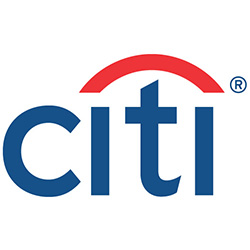Financial Results
Citigroup's Profits Fall, Revenues Rise In Q3, 2022

Citigroup reports third quarter 2022 results. The bank has been on a drive to unload its retail banking businesses in a number of jurisdictions and focus more on higher-margin areas such as wealth management.
Citigroup has reported that its revenues rose by 6 per cent from the prior-year period, whilst profits fell by 25 per cent to $3.48 billion or $1.63 per share.
According to the bank, net income for the third quarter of 2022 reached $3.5 billion, or $1.63 per diluted share on revenues of $18.5 billion.
This compares with net income of $4.6 billion, or $2.15 per diluted share, on revenues of $17.4 billion for the third quarter 2021, the firm said in a statement.
The US lender has been spinning off retail banking in 14 jurisdictions, such as in Mexico, the Philippines and Australia and part of a pivot to areas such as wealth management. This is a strategy set out more than a year ago by CEO Jane Fraser.
Third quarter results included Asia Consumer divestiture-related impacts of approximately $520 million in earnings before taxes (approximately $256 million after tax), primarily attributable to a gain on the sale of the Philippines consumer business. Excluding these divestiture-related impacts, earnings per share were $1.50.
Revenues increased 6 per cent from the prior-year period, primarily due to the gain on the sale of the Philippines consumer business versus a loss on sale of the Australia consumer business in the prior-year period, the firm added.
Underlying figures
Excluding these divestiture-related impacts, revenues were down 1
per cent, as growth in net interest income was more than offset
by lower non-interest revenues. On this basis, higher net
interest income was driven by the impact of higher interest rates
across businesses and strong loan growth in Personal Banking and
Wealth Management. This was more than offset by lower
non-interest revenues reflecting declines in Investment Banking
and Markets in Institutional Clients Group and investment product
revenues in Global Wealth Management in PBWM.
Net income of $3.5 billion decreased by 25 per cent from the prior-year period, primarily caused by the higher cost of credit resulting from the loan growth in PBWM and higher operating expenses, the firm said.
Earnings per share of $1.63 decreased 24 per cent from the prior-year period, reflecting the lower net income, partially offset by an approximate 4 per cent decline in average diluted shares outstanding, the firm added.
“We are intensely focused on supporting our clients and executing our strategy. We have made good progress on many of the core business drivers we laid out at Investor Day, despite the complex macro environment," Fraser said.
“Treasury and Trade Solutions saw revenues up 40 per cent year-over-year, with growth across all segments, and Securities Services were up 15 per cent. In Fixed Income, we matched last year’s showing through our strength in FX, while Equities came in lower than last year,” she said. “Banking was the business most adversely impacted by the macro environment with reduced deal flows and a lower appetite for M&A. While the backdrop for wealth management was difficult, our revenues were up outside of Asia. US Personal Banking further solidified its growth trajectory with double digit revenue growth in both of our cards businesses."
“We continue to shrink our operations in and exposure to Russia and we will be ending nearly all of the institutional banking services we offer next quarter. To be clear, our intention is to wind down our presence in this country,” she continued.
“We returned $1 billion in capital to our shareholders and ended the quarter with a CET1 ratio of 12.2 per cent, as we actively managed our RWA to improve the returns we generate for our shareholders. Given the strength of our balance sheet, capital levels and liquidity, we are well positioned to help our clients navigate very challenging markets and slower growth,” she added.